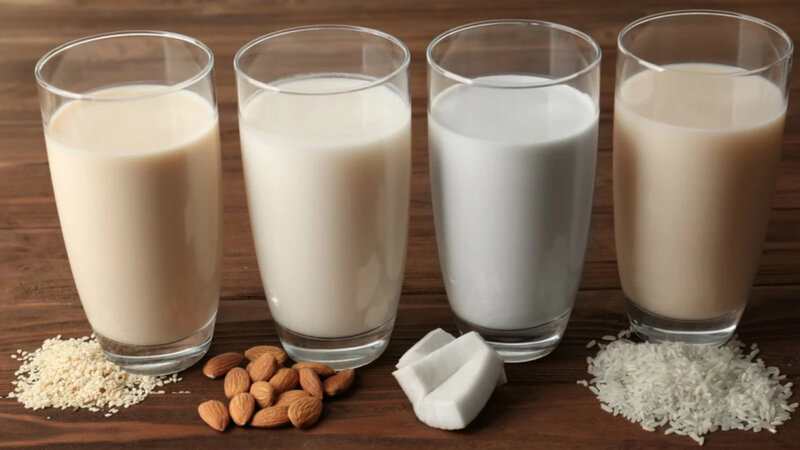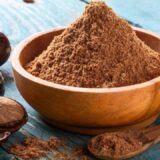Types of Milk: A Comprehensive Guide to Healthier Choices
Milk alternatives have gained significant popularity in recent years as more individuals seek alternatives to traditional cow’s milk. These alternatives, derived from various plant sources, offer a range of options for those with dietary restrictions, allergies, or specific lifestyle choices.
From almond milk and soy milk to oat milk, coconut milk, and beyond, milk alternatives provide a wealth of choices to suit different taste preferences and nutritional needs.
Whether you’re looking for a low-calorie option, a dairy-free alternative, or a plant-based source of protein, exploring milk alternatives allows you to customize your beverage choices to align with your individual health goals.
With careful consideration and guidance from healthcare professionals or registered dietitians, incorporating milk alternatives into your diet can provide a refreshing and nutrient-rich experience.
What are the 15 types of milk?
The world of milk alternatives offers a plethora of choices to suit diverse dietary preferences and restrictions. Whether you opt for macadamia nut milk, cashew milk, quinoa milk, flaxseed milk, hazelnut milk, or any other alternative discussed, each option provides its unique set of nutritional benefits. Below is the list of milk alternatives that will amaze you.
1. Almond Milk: A Nutrient-Dense Option
Almond milk, derived from blending almonds with water, is a popular non-dairy alternative. According to the dietitian’s evaluation, almond milk ranks favorably due to its low-calorie content, notable calcium and vitamin E levels, and absence of cholesterol and saturated fats. This makes it a commendable choice for individuals seeking a nutritious and low-calorie milk substitute.
2. Soy Milk: An Excellent Plant-Based Protein Source
Soy milk, derived from soybeans, boasts a remarkable protein content that rivals that of cow’s milk. The dietitian commends soy milk for its high-quality protein, which is essential for muscle development and overall health. Furthermore, soy milk is naturally lactose-free and contains heart-healthy unsaturated fats, making it a compelling option for those with lactose intolerance or individuals following a plant-based lifestyle.
3. Oat Milk: A Rising Star in the Milk Market
Oat milk, crafted by soaking and blending oats with water, has experienced a surge in popularity recently. This milk alternative offers a creamy texture and a slightly sweet taste, making it an appealing choice for many. From a nutritional standpoint, the dietitian emphasizes that oat milk is an exceptional source of dietary fiber, which aids in digestion and promotes satiety. It is also naturally free of cholesterol and contains beneficial nutrients such as beta-glucans, a type of soluble fiber that supports heart health.
4. Coconut Milk: A Rich and Flavorful Indulgence
Derived from the flesh of coconuts, coconut milk possesses a distinct flavor and creamy texture. While it is higher in saturated fats, the dietitian suggests consuming it in moderation. Coconut milk can provide essential nutrients like iron, magnesium, and manganese, which contribute to maintaining a healthy body. However, due to its higher calorie content and saturated fat levels, it may be more suitable as an occasional treat or in culinary applications rather than as a daily milk replacement.
5. Cow’s Milk: A Classic Staple with Essential Nutrients
Cow’s milk has long been a staple in many diets, owing to its high calcium content, which is crucial for bone health. The dietitian acknowledges that cow’s milk also contains essential nutrients like vitamin D, vitamin B12, and high-quality protein. However, individuals with lactose intolerance or those who follow a plant-based lifestyle may find other milk alternatives more suitable.
6. Rice Milk: A Mild and Hypoallergenic Option
Rice milk, made from milled rice blended with water, is a hypoallergenic milk alternative suitable for individuals with lactose intolerance or milk allergies. While it is naturally free of cholesterol and saturated fats, rice milk tends to be lower in protein compared to other milk alternatives. However, it can be fortified with essential nutrients such as calcium and vitamin D to enhance its nutritional value.
7. Hemp Milk: A Nutrient-Rich Plant-Based Choice
Hemp milk, derived from the seeds of the hemp plant, has gained popularity as a plant-based milk option. Rich in omega-3 and omega-6 fatty acids, hemp milk offers potential benefits for heart health and inflammation regulation. It also provides a good source of essential minerals, including magnesium, phosphorus, and potassium. However, it is important to note that hemp milk is relatively low in protein compared to cow’s milk or soy milk.
8. Pea Milk: A Rising Star in the Plant-Based Milk Scene
Pea milk, made from yellow peas, has emerged as a promising plant-based milk alternative. It offers a comparable protein content to cow’s milk, making it an excellent choice for individuals seeking a high-protein option. Pea milk also contains essential amino acids and is often fortified with additional nutrients such as calcium and vitamin D. Moreover, it is naturally free of cholesterol and lactose, catering to those with specific dietary restrictions.
9. Goat’s Milk: A Viable Alternative for Some Individuals
While not as widely consumed as cow’s milk, goat’s milk presents an alternative for individuals who may experience difficulty digesting cow’s milk. It contains less lactose than cow’s milk and has a different protein structure, which may make it more tolerable for certain individuals. Goat’s milk is also a notable source of vitamins and minerals such as calcium and phosphorus. However, it is important to consult with a healthcare professional, as goat’s milk may still cause allergic reactions in individuals with a cow’s milk allergy.
10. Plant-Based Blends: Combining the Best of Both Worlds
In recent years, various plant-based milk blends have emerged, combining the nutritional benefits of different plant sources. These blends, such as almond-coconut milk or oat-soy milk, offer a unique flavor profile while providing a combination of nutrients from multiple sources. They can be an excellent option for individuals seeking diversity in their milk choices and aiming to benefit from the individual advantages of different plant-based milks.
11. Macadamia Nut Milk: A Creamy and Nutrient-Dense Choice
Macadamia nut milk has gained attention as a rich and creamy milk alternative. Made from blending macadamia nuts with water, this milk offers a unique flavor profile and a smooth texture. While it is higher in calories compared to other milk alternatives, macadamia nut milk contains heart-healthy monounsaturated fats and is naturally cholesterol-free. Additionally, it provides essential minerals such as calcium, magnesium, and potassium, making it a viable option for those looking for a decadent and nutrient-dense milk alternative.
12. Cashew Milk: A Creamy and Versatile Milk Substitute
Cashew milk, derived from blending cashews with water, is a popular choice due to its creamy consistency and mild flavor. It is low in calories and contains heart-healthy monounsaturated fats. Cashew milk is also a good source of minerals such as iron, zinc, and copper. However, it is important to note that cashew milk is relatively low in protein compared to cow’s milk or soy milk. Consequently, individuals relying on cashew milk as a primary protein source should ensure they obtain adequate protein from other dietary sources.
13 . Quinoa Milk: A Nourishing Gluten-Free Alternative
Quinoa milk has emerged as a gluten-free milk alternative made from blending quinoa grains with water. It provides a range of essential nutrients, including protein, dietary fiber, and various vitamins and minerals. Quinoa milk is also naturally lactose-free and cholesterol-free, making it suitable for individuals with lactose intolerance or those following a plant-based or gluten-free diet. However, it is worth noting that quinoa milk may have a slightly earthy taste that may not appeal to everyone’s palate.
14. Flaxseed Milk: A Plant-Based Omega-3 Powerhouse
Flaxseed milk, crafted from blending ground flaxseeds with water, offers a notable plant-based source of omega-3 fatty acids. Omega-3s are essential for heart health and brain function. Flaxseed milk is also rich in dietary fiber, lignans, and essential minerals like magnesium and manganese. However, it is lower in protein compared to other milk alternatives, so individuals relying on flaxseed milk should ensure they incorporate other protein sources into their diet.
15. Hazelnut Milk: A Flavorful and Nutrient-Rich Delight
Hazelnut milk, made from blending hazelnuts with water, provides a rich and indulgent flavor. It contains beneficial nutrients such as vitamin E, magnesium, and potassium. Hazelnut milk is also a good source of dietary fiber and heart-healthy monounsaturated fats. However, it is higher in calories compared to some other milk alternatives, so portion control is essential when incorporating hazelnut milk into a balanced diet.
Final Note:
With a multitude of milk alternatives available, selecting the healthiest option can be a daunting task. By considering the insights of a registered dietitian, you can make informed choices based on the nutritional profiles of various milk alternatives.
Whether you opt for almond milk, soy milk, oat milk, coconut milk, cow’s milk, or explore lesser-known alternatives like rice milk, hemp milk, pea milk, goat’s milk, or plant-based blends, the key is to prioritize your individual dietary needs and preferences.
By incorporating these expert recommendations, you can confidently choose the milk alternative that best supports your overall health and well-being. Remember, consulting a healthcare professional is always recommended, especially if you have specific dietary restrictions or allergies.

























